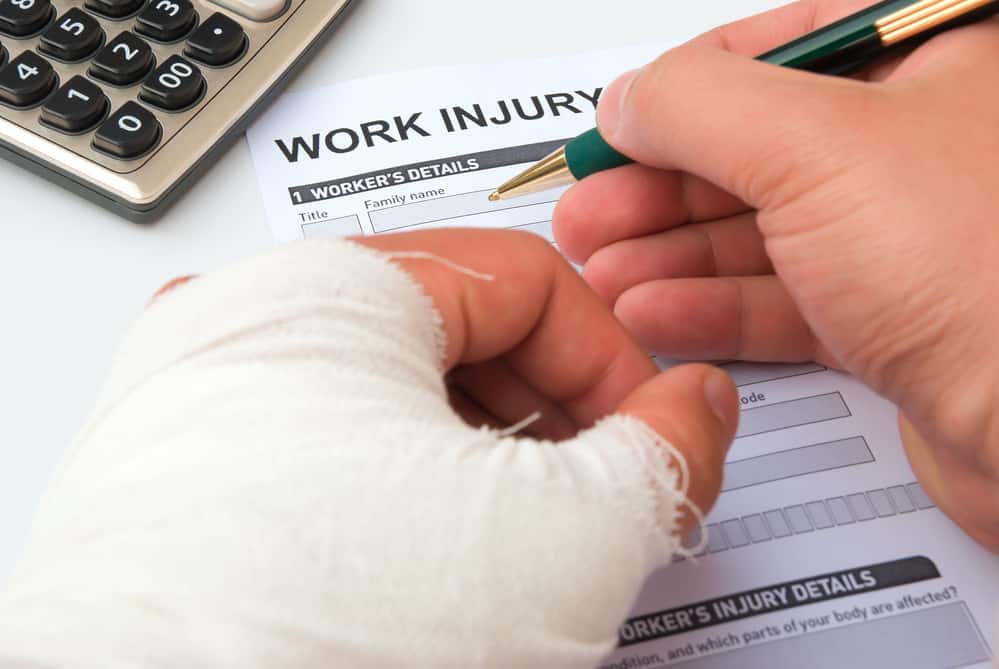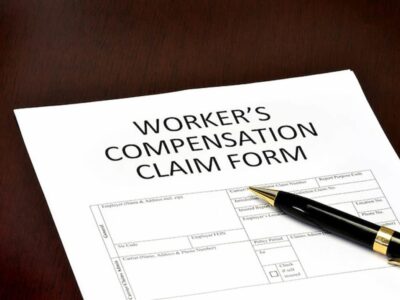While at a get-together with your coworkers, you twist your ankle and fall, later finding out you suffered a sprain. Are you eligible for workers’ compensation for your injury? That would depend on the specifics of the accident. If you fell during your company’s annual holiday party, workers’ compensation might apply, but you would be out of luck if you were just having dinner with your office mates after work. At the Law Offices of Hussain & Gutierrez, we know the circumstances surrounding after-hours work injuries in California can be confusing, and we are prepared to answer your questions.
Injuries that are related to a work errand or activity off the clock or away from your workplace may be covered by workers’ compensation, as FindLaw explains. Additionally, the coming-and-going rule applies to what is covered while traveling to and from your job, both before and after work. For example, you would not be covered by workers’ compensation when driving home after work, but if you trip on the sidewalk in your office’s parking lot on your way in, that would be covered under workers’ compensation.
The following examples can help you understand what also qualifies:
- Being in a car accident while driving to a supply store for your office
- Slipping on a wet floor at the post office while mailing a package for your boss on your way home
- Getting hurt while you are at a business luncheon or on a trip related to your job
Job-related accidents that occur outside normal business hours or away from the workplace can be particularly complicated. Our workers’ compensation page explains more about your rights.
The Coming-and-Going Rule: What It Means
In California, the coming-and-going rule generally bars compensation for injuries sustained during your commute. However, this isn’t always the case. If your injury occurs in an area controlled by your employer, such as a parking lot or entryway, or if your commute includes a stop for a work errand, an exception may apply.
Similarly, if you are a traveling employee or required to report to multiple job sites, the line between personal commute and work duty becomes less clear. These scenarios require a case-specific analysis to determine whether your injury falls within the course and scope of employment under California Labor Code §3600.
Special Mission Exception: Running Work Errands After Hours
If you’re performing a task at the request of your employer, even outside of regular hours or away from your workplace, you may qualify for coverage under the special mission doctrine. These situations often involve errands that directly benefit the employer.
Examples include:
- Delivering documents after hours
- Picking up supplies for a morning meeting
- Mailing time-sensitive materials for your supervisor
Courts often consider whether the task was employer-assigned, whether it benefitted the company, and whether it deviated from your normal routine. Documentation (emails, texts, instructions) is important to support your case.
Company Events and Holiday Party Injuries
Injuries sustained during company events such as holiday parties, retreats, or team-building outings may be covered, depending on the nature of the event. If the employer organized the event, paid for it, or strongly encouraged attendance, then workers’ compensation may apply.
Factors that increase eligibility:
- Employer paid for or hosted the event
- Attendance was expected or encouraged
- Clients, branding, or business activities were involved
Casual social events initiated by employees, such as happy hours, are typically not compensable unless the employer was significantly involved in their organization.
Remote Work Injuries: Are You Still Covered?
Yes. California workers’ compensation law can cover injuries that occur while working remotely, so long as the injury arises out of and occurs during the course of your employment. For example, if you injure your back while lifting a company-provided printer during work hours, that may be covered.
However, not every at-home injury qualifies. Slipping on your stairs while doing laundry during a brief break may not be covered unless it’s part of your usual work pattern, such as a bathroom or snack break, under the personal comfort doctrine.
Keep records of your work hours, assigned tasks, and employer-provided equipment to support any claim.
Traveling for Work? You May Be Covered
When traveling for business, employees are typically covered for the entire duration of the trip, not just during meetings or formal duties. This is known as the doctrine of continuous employment.
Coverage may apply to injuries sustained:
- In a hotel or while commuting between job sites
- During a business lunch or dinner
- While attending a conference, even after hours
Personal errands, such as sightseeing or extended leisure activities, may fall outside of compensable activities during travel. But as long as your activities are reasonably tied to the business purpose of the trip, your coverage remains in effect.
Injuries During Lunch or Rest Breaks
Whether an injury during a meal or break is covered depends on where and how it occurred. If you’re on a designated lunch break and injured on your employer’s premises, the injury might be covered. This falls under the personal comfort doctrine, which protects reasonable breaks taken during work.
However, if you’re off-site and not under any supervision or business requirement, coverage becomes less likely unless your employer directed the location or benefited from the break in some way (such as meeting a client for lunch).
Are Independent Contractors or Temp Workers Covered?
Generally, independent contractors are not covered by California workers’ compensation. However, many workers are misclassified. If your employer controls your schedule, tools, or workflow, you may legally be considered an employee and eligible for benefits.
For temporary workers, the staffing agency or the host company may be held responsible. If you were injured while under the control of the host employer (i.e., being supervised by them), that entity may be liable under dual employment rules.
What About Volunteer or Charitable Events?
Participation in a charitable event organized or sponsored by your employer may be covered if your attendance benefits the company, such as enhancing its public image, facilitating client outreach, or promoting team building.
However, if the event was purely voluntary and your employer had no involvement beyond making you aware of it, it may not qualify. The more your employer is involved in organizing or incentivizing the activity, the more likely it will be deemed work-related.
Documenting an Offsite or After-Hours Work Injury
Because off-site or after-hours injuries are more difficult to prove, documentation is critical. The more evidence you have that ties your activity to a work-related purpose, the stronger your claim will be.
Key types of evidence include:
- Texts or emails assigning the task
- Statements from supervisors or coworkers
- Medical records describing when and how the injury occurred
- Employment agreements outlining duties, hours, or travel expectations
Frequently Asked Questions
What is the coming-and-going rule?
It excludes commute injuries from workers’ comp coverage unless exceptions apply, such as injuries on employer-controlled premises or during work-related detours.
Can I receive workers’ compensation if I was hurt at a work party?
Yes, if the employer organized or encouraged the event and it served a company purpose, you may qualify for coverage.
Are remote work injuries covered?
They can be, provided the injury occurred during work hours while performing a job-related task.
Does coverage apply during lunch breaks?
Injuries on employer property during reasonable breaks may be covered. Off-site lunch injuries are typically excluded unless they are deemed business-related.
What if I’m classified as a contractor?
You may still qualify if you were misclassified and your work functions like that of a regular employee.
What should I do after an off-site injury?
Report the incident immediately, gather proof that the task was assigned, and consult an attorney to evaluate your eligibility.
If you’ve suffered an injury outside regular work hours, during an errand, or at a work-related event, your eligibility for workers’ compensation will depend on the details. Don’t leave your claim to chance.
The Law Offices of Hussain & Gutierrez understand the complexities of after-hours, remote, and off-site injury claims. We can help you determine whether your injury qualifies and guide you through the process.
Contact Hussain & Gutierrez today to schedule a free consultation with an experienced California workers’ compensation attorney.



